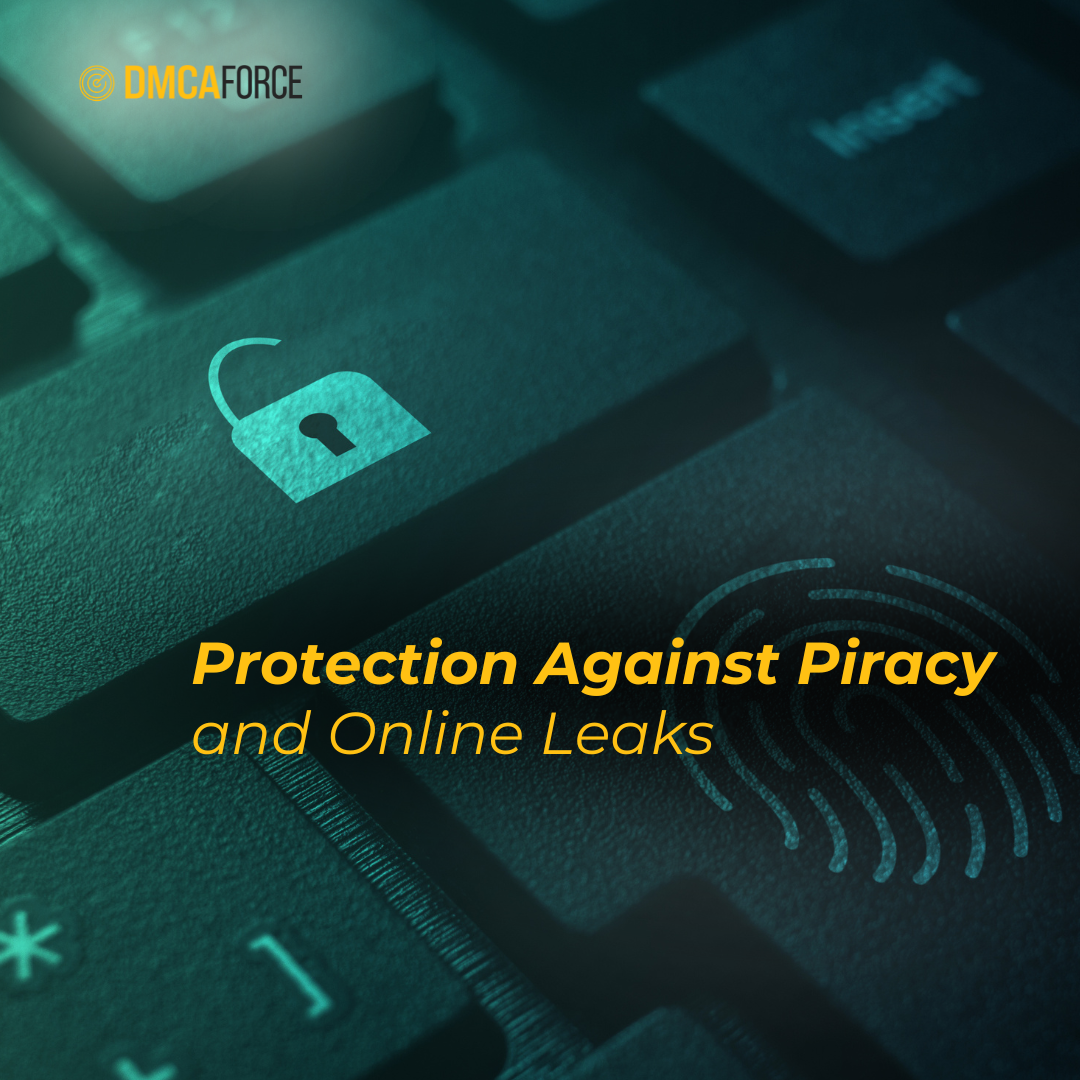News

The World of AI and Online Piracy
In recent years, AI-powered tools have made it easier for pirates to distribute copyrighted content on a massive scale. These tools can quickly upload and share large files, making it difficult for authorities to track down the source of the pirated content. Additionally, AI-powered bots can create fake social media accounts and websites that appear legitimate, further complicating efforts to combat piracy.
However, AI can also be used to fight piracy. For example, AI-powered algorithms can be used to detect and remove copyrighted content from online platforms. These algorithms can analyze audio and video files to identify matches with known copyrighted material, making it easier for platforms to take down infringing content.
Moreover, AI can help creators protect their work by watermarking their content with invisible markers that are difficult for pirates to remove. This makes it easier for authorities to trace the source of pirated content back to its original creator.
Despite these efforts, online piracy remains a significant problem. Many people still believe that pirating music, movies, and software is harmless or even justified because they are not directly hurting anyone. However, this couldn’t be further from the truth. Piracy deprives creators of their rightful earnings and undermines the entire creative industry.
To combat this problem, governments and tech companies must work together to develop more effective solutions. This includes investing in AI-powered anti-piracy tools and increasing public awareness about the negative impacts of piracy. By working together, we can create a safer and more equitable online environment where creators are rewarded for their hard work and innovation thrives.
Why is online piracy a big problem?
Online piracy is a big problem because it hurts creators and the economy in many ways. When someone pirates music, movies, software, or other digital content, they are stealing from the people who created it. This means that the creators don’t get paid for their hard work, which can make it difficult for them to continue creating new content.
Piracy also costs jobs and revenue. According to a study, online piracy costs the US economy alone over $30 billion each year. This is because when people pirate content instead of buying it legally, companies don’t make as much money. As a result, they may have to lay off employees or cut back on production.
Furthermore, piracy can also lead to identity theft and malware infections. Many pirated files contain viruses or malware that can harm your computer or steal your personal information. This can lead to financial losses and even put your personal safety at risk.
In addition, piracy undermines innovation and creativity. When creators don’t get paid for their work, they may not be motivated to create new content or take risks on new ideas. This means that we may miss out on new music, movies, and software that could improve our lives.
Finally, piracy is illegal and can result in serious consequences. In some countries, people who are caught pirating content can face fines or even jail time.
How serious is digital piracy?
One of the most significant impacts of digital piracy is financial loss. According to a report, the global economy loses over $1 trillion every year due to digital piracy. This means that creators and owners of digital content don’t receive payment for their work, which can lead to job losses and business closures.
Digital piracy also undermines innovation and creativity. When creators don’t get paid for their work, they may not have the resources or motivation to create new content. This can lead to a lack of new ideas and products in various industries.
Furthermore, digital piracy can be harmful to individuals who engage in it. Pirated content often contains malware or viruses that can damage computers or steal personal information. This can lead to identity theft, financial loss, and even legal problems.
In addition, digital piracy is illegal and can result in serious consequences. In many countries, people who are caught pirating content can face fines or even imprisonment.
The seriousness of digital piracy is also reflected in its widespread nature. According to a study, nearly 40% of internet users worldwide engage in some form of digital piracy every year. This means that millions of people are contributing to the problem.
Where is online piracy most common?
Online piracy is a global problem, but it’s more prevalent in some countries than others. According to various studies and reports, here are some of the countries where online piracy is most common:
In Asia, countries like China, India, and Indonesia have high rates of online piracy. This is due to a combination of factors, including limited access to legal content, high prices for legitimate products, and a lack of effective anti-piracy laws.
In Latin America, countries like Brazil and Mexico have significant problems with online piracy. This region has seen a surge in pirate sites and streaming services that offer illegal content.
In Eastern Europe, countries like Russia and Ukraine have struggled with online piracy for years. The region has a large number of pirate sites and torrent platforms that offer illegal content.
In the Middle East and North Africa, countries like Egypt and Turkey have high rates of online piracy. This is partly due to limited access to legal content and a lack of awareness about the risks of pirating digital content.
The United States also has a significant problem with online piracy, particularly when it comes to music and movie streaming. Many Americans use pirate sites or streaming services that offer illegal content.
It’s worth noting that online piracy is a global problem that affects many countries. Even in countries with strong anti-piracy laws, there are still many people who engage in pirating digital content.
Can AI stop piracy?
Artificial intelligence (AI) is being used to combat digital piracy, and it’s showing promising results. AI-powered systems can help identify and block pirated content, making it harder for pirates to distribute illegal copies of music, movies, and software.
One way AI is being used is through content recognition technology. This involves training AI algorithms to recognize specific patterns and features in digital content, such as audio or video files. When a pirated copy of a song or movie is uploaded online, the AI system can quickly identify it and flag it for removal.
Another approach is using machine learning to analyze user behavior. AI can monitor how users interact with online platforms and identify suspicious activity that may indicate piracy. For example, if a user is downloading an unusual number of files from a particular site, the AI system may flag their account for further investigation.
AI-powered chatbots are also being used to educate users about the risks of piracy. These chatbots can engage with users who are searching for pirated content online and provide them with information about the legal consequences of piracy and the importance of respecting intellectual property rights.
Why is online piracy a big problem?
Online piracy is a big problem because it affects many people and industries in significant ways. Here are some reasons why:
Firstly, online piracy hurts creators and artists. When people pirate music, movies, or software, the creators don’t get paid for their work. This means they lose income and may not be able to continue creating new content. It’s like stealing from someone’s pocket!
Secondly, online piracy can be harmful to consumers. Pirated content often contains viruses or malware that can damage computers or steal personal information. This can lead to identity theft, financial loss, and even legal problems.
Thirdly, online piracy undermines innovation and progress. When creators don’t get paid for their work, they may not have the resources or motivation to create new and innovative products. This can slow down progress in various industries and limit our access to new ideas and technologies.
Fourthly, online piracy is illegal and can result in serious consequences. In many countries, pirating content is a criminal offense that can lead to fines or even imprisonment.
Fifthly, online piracy affects the economy as a whole. According to estimates, the global economy loses billions of dollars every year due to digital piracy. This means that governments lose tax revenue, businesses lose sales, and jobs are lost.
Lastly, online piracy promotes a culture of disrespect for intellectual property rights. When we pirate content without permission, we’re saying that it’s okay to take something that doesn’t belong to us without paying for it. This attitude can spread to other areas of life and undermine our values of honesty and respect for others’ property.
How to Protect Your OnlyFans Content from Online Leaks and Piracy
November 15, 2024

Protect Your Content on Telegram: Using DMCA Claims to Combat Piracy
November 13, 2024

Unlock Your Revenue Potential at the AW Summit 2024 in Bucharest!
September 10, 2024
Got questions about protecting your digital assets from copyright infringement?


